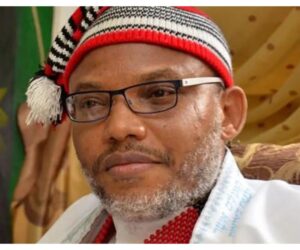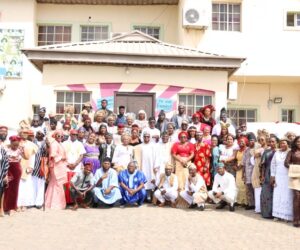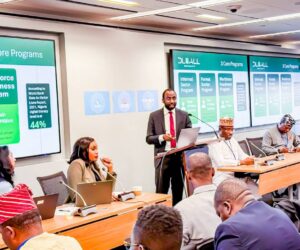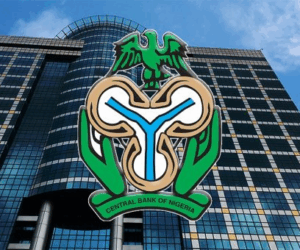Zainab Ahmed, group executive director, World bank has outlined several concrete initiatives aimed at mitigating risk and attracting private investment to finance Africa’s infrastructure.
These initiatives forms part of the commitment to clearer development visions of Africa to unlock capital, which she highlighted during the third Luanda summit on infrastructure financing in a high-level ministerial dialogue titled: ‘Upscaling Development Finance for Connectivity and Market Access’.
Ahmed, representing The World bank as a development finance institution, together with global partners, convened at the summit to address the persistent challenge of mobilising private finance for African infrastructure.
They all acknowledged that efforts to move from “billions to trillions” have, thus far, fallen short of expectations.
Speaking exclusively to Business day, Ahmed explains how the World bank has structured its financing to reduce the cost of borrowing and expand access to businesses.
“We combine concessional funding with non-concessional funding, and that reduces the cost of borrowing for the lender. In the bank, we have AIDA, which is a 100 percent concession, a very low cost interest rate”
“So we combine that with funding from AIDA, and it now enables not just governments that are eligible to access AIDA, but also businesses. As long as the context has the human impact, then we adopt this approach.”
She further highlighted some of the initiatives of the World bank to mitigate risk and attract private investment to find infrastructure which are:
West and Central Africa joint structure (JS) platform: This new platform has secured $2.5 billion in financing. The package, anchored by the International Development Association (IDA), includes a private sector guarantee from IFC (International Finance Cooperation) and MIGA (Multilateral Investment Guarantee Agency (MIGA) as a subordinate layer.
The structure is designed to offer upfront working capital to companies, mitigate investor risk, and provide scalable energy access solutions that boost electrification, job creation, and climate resilience.
Blended finance and risk mitigation: The institution is advocating for the wider use of blended finance combining concessional and commercial capital, to attract private sector interest in high-impact projects that would otherwise be considered too risky.
Africa local currency bond: The World Bank is engaged in an initiative aimed at deepening local capital markets.
This instrument directly enhances project resilience by providing a risk mitigation layer that shields projects from the interest rate and foreign currency risks associated with low-risk foreign borrowing, thereby improving project profitability.
Read also: U.S. to engage Nigeria, African nations through expanded trade, private investment – Envoy
Ahmed also acknowledged that private sector mobilisation has been less successful than hoped, in part because key constraints, such as limited private sector capacity and poor governance of infrastructure projects, were not adequately addressed.
Germany champions shared continental vision
In terms of the role of international partners in mobilising private finance for the continent, Birgit Pickel, director-general for Africa Germany-based BMZ, reaffirmed Germany’s long-standing support for the African Union Development Agency (AUDA-NEPAD) and its role in championing G20 initiatives, including the Compact with Africa.
Bickel emphasised the critical need for a shared, specific vision for connectivity, which encompasses energy, transport, and digital sectors.
He highlighted the work on the African electricity market and the continental market plan as positive examples.
Crucially, he noted that the largest opportunity for integrated development lies in achieving integrated trade under the African Continental Free Trade Agreement (AfCFTA).
“These clear visions and also strategies behind that are really, really helpful to guide, to attract interest, and also for partners like Germany, European Commission, World Bank, partners here to align to these visions on the continent”, he said.
Bickel also noted Germany’s strong historical support for Programme for Infrastructure Development in Africa.
He pointed out a positive shift in PIDA’s approach, which is moving from an initial list of 169 projects to a more streamlined and strategic selection of fewer, regional projects that have secured explicit government commitment.
This targeted focus, he argued, makes the projects far more viable and attractive for investment.









